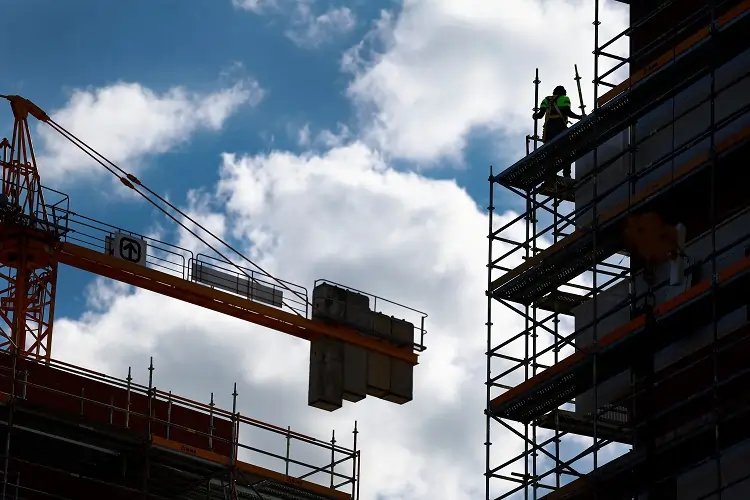Euro zone negotiated pay growth accelerates in Q3, adding to rate cut caution


FRANKFURT (Reuters) – Euro zone negotiated wage growth accelerated in the third quarter, adding to the case for caution in cutting interest rates quickly as the labour market remains tight despite some signs of cooling, data from the European Central Bank showed on Wednesday.
Growth in negotiated wages picked up to 5.42% in the third quarter from 3.54% in the previous three months as workers continued to demand a compensation for incomes lost to the recent spike in inflation.
The figure is unlikely to dash hopes for another ECB rate cut in December. However, policy hawks are likely to use the figures to temper market bets, which see a cut at every policy meeting through the spring, with the 3.25% deposit rate falling to 2% or possibly lower in 2025.
Still, others are likely to argue that recent wage deals not yet reflected in these data are more modest and point to further cooling.
Germany’s IG Metall union last week reached a 5.5% pay increase over 25 months for almost 4 million workers, a rather modest deal that may serve as precedent for others to temper demands.
“Our expectation remains that Euro area pay growth will slow noticeably next year as inflation-related catch-up effects fade,” JPMorgan economist Greg Fuzesi said. “As headline inflation is now much lower, nominal wage growth will also reset at lower levels going forward once real wages have recovered sufficiently.”
The bloc’s labour market has been the biggest headache for the ECB as it tries to tame a once-in-a-generation spike in price growth.
Unemployment is at a record low and firms keep hiring workers despite anaemic economic growth hoping to keep a full workforce as they bank on an eventual recovery.
This labour hoarding has increased the negotiating power of unions and workers want their pay to catch up in real terms to levels before inflation.
While the ECB has long acknowledged that wage catch up is necessary, it also called for moderation since excessive payouts could further boost inflation, creating a self-reinforcing cycle.
But inflation has fallen quicker than most expected and price growth is now seen back at 2% possibly in early 2025 as companies are absorbing some wage increases via lower profits and price increases for imported goods and energy have also been especially low.
Price pressures have weakened so much that some policymakers even fear that the ECB could undershoot its 2% inflation target, requiring interest rate to go to ultra low levels.
(Reporting by Balazs Koranyi, Editing by Friederike Heine and Toby Chopra)
Wage growth refers to the increase in the average pay of workers over a specific period. It is often influenced by inflation, labor market conditions, and collective bargaining agreements.
Monetary policy is the process by which a central bank, like the European Central Bank, manages the money supply and interest rates to achieve specific economic goals, such as controlling inflation and stabilizing currency.
Inflation is the rate at which the general level of prices for goods and services rises, eroding purchasing power. It is typically measured by the Consumer Price Index (CPI).
The labor market is the supply and demand for labor, where employers seek to hire workers and individuals seek employment. It is influenced by economic conditions, wage levels, and job availability.
Interest rates are the cost of borrowing money or the return on savings, expressed as a percentage. They are set by central banks and can influence economic activity and inflation.
Explore more articles in the Banking category











